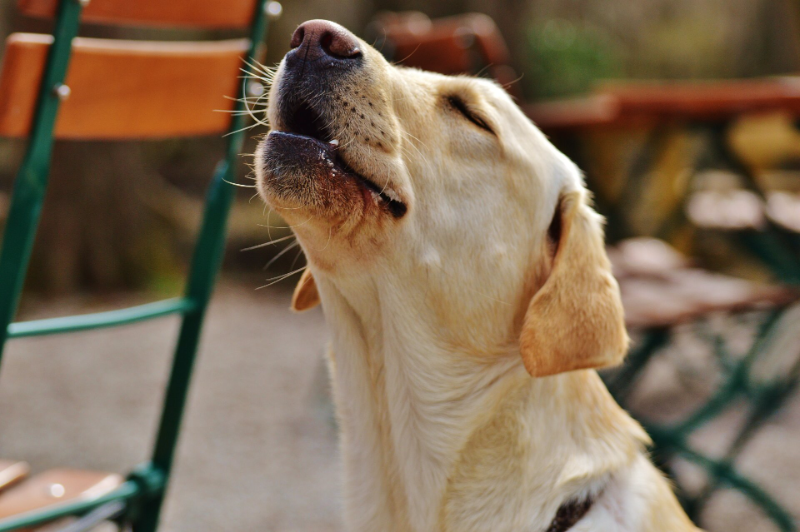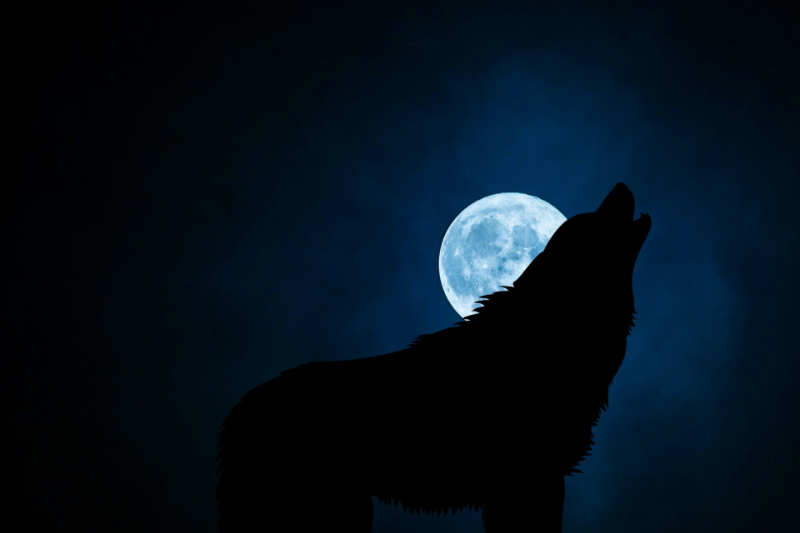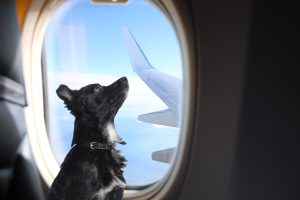Why do dogs howl?
Dogs are direct descendants of gray wolves, and howling has ancestral roots, like many other canine habits. In the wild, fearful wolves in the woods howl to alert other members of the pack family of their whereabouts. Wolves also howl to warn other wild creatures to stay away from their territory. Your dog may not howl to locate themselves or to keep intruders away, but dogs still howl as a method of communication today, just as they did in the wild. Because dogs are now members of human families, it’s crucial to know what they’re trying to say when they howl so you can react accordingly.
What are dogs communicating through howling?
- Howling is a form of communication used by pack members to locate each other. When a dog is left at home alone, they may howl when they hear you drive up to your house or when they see you climbing the stairs, in an attempt to guide you back to them securely.
- Many dogs howl in response to specific high-pitched sounds, such as sirens and music, or to the vocalizations of another dog. Howling signifies that they have heard the sound and expresses their willingness to reply or participate. Unless the triggers occur frequently and become a problem for you or your neighbors, this form of howling isn’t normally bothersome.
- Intruders are kept out of some dogs’ territories by howling. They alert incoming dogs to the fact that a specific area has already been claimed and that guests are not welcome. Howling is an effective protective strategy for scaring off intruders. When a stranger approaches their territory, dogs may howl to protect their homes.
- In the same way, an arriving dog might howl to warn other dogs that they are approaching. This auditory warning avoids an approaching dog from frightening local inhabitants. Howling warns other canines in the area that their surroundings are about to change.
- Sometimes dogs howl to express their desire for attention. The approach is successful because nothing attracts a dog owner’s attention like a piercing howl.
- When your dog is left alone, he may howl because of separation anxiety. Separation anxiety causes the dog to howl only when he is apart from his owner, thus the howling stops as soon as you return home. Separation anxiety in dogs often responds well to distractions like chewing toys, music, or television while you’re away, but some dogs may require behavior medicines and counseling or training sessions.
- Some howls simply cannot be ignored. Your usually quiet dog may hurt and in pain if he’s howling. When people are hurt, they cry or yell, and dogs do this as well. Only dogs express their distress by howling. To rule out disease or injury, it is best to take your dog to the veterinarian.
- Dogs also howl when they are happy with themselves. Even if your dog isn’t a hunter, he will probably be proud of discovering a new object in the yard or by bringing you the newspaper or your favorite pair of socks.
How can you stop your dog from howling to get attention?
The most effective way to reduce attention-seeking howling is to use a behavior conditioning strategy known as reinforcement. If your dog howls, ignore them. When your dog calms down and stops howling, you can give them attention, which is referred to as positive reinforcement.
Try avoiding eye contact with a howling dog and fight the impulse to approach him. Don’t pet or talk to him, but also don’t scold him. Disciplining your dog may aggravate the matter since some dogs, like some children, will do anything for attention, even negative attention. Give him the attention he demands once he has calmed down.
This is challenging, especially if you’re worried about disturbing your neighbors, but perseverance pays off. Try rewarding just positive behavior in assisting your dogs howls for attention. When he’s calm, give him hugs and treats, but don’t give him anything he “asks for” with howling.
Why some dogs don’t howl?
If your dog doesn’t howl, the first thing you should consider is whether your dog’s breed is prone to howling. Some breeds howl more than others. Your dog may not howl for a variety of reasons, including a natural dislike to howling, negative previous experiences with howling or previous training. You may have encouraged him not to howl, or due to an illness or injury.
Howling is frequently triggered by loud sounds, and if your dog isn’t responding vocally, it’s a possibility that they could be deaf or losing their hearing.
Rescue dogs who don’t howl and are silent may have had some traumatic experiences in the past that affected their urge to be vocal. Unfortunately, our canine companions can experience traumatic incidents as well, and if the trauma was caused by howling, they may be too afraid to repeat the act, despite how comfortable they are with you.







